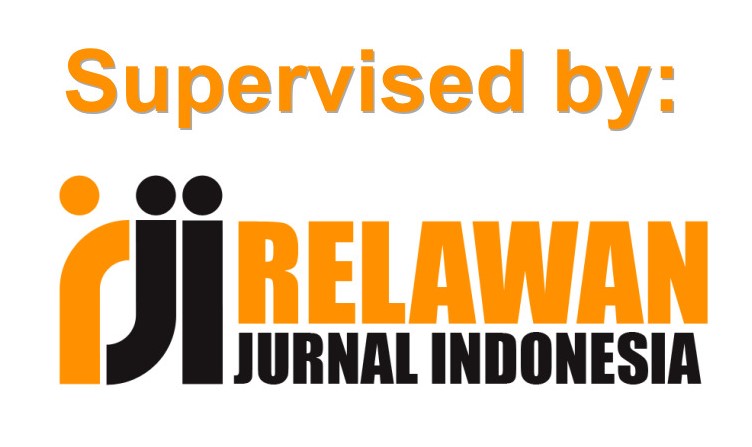Kesetaraan Gender dalam Persfektif Islam
Abstract
Keywords
Full Text:
PDF [INDONESIA]References
Ahmad, Khurshid. 1989. Mempersoalkan Wanita. Jakarta: Gema Insani.
Anonim, 2008, Kedudukan Wanita dalam Islam, dalam https://muslimah.or.id, diakses tanggal 29 Juni 2019 pukul 21:00 WIB.
Arfan Muammar, Muhammad. Wahid Hasan, Abdul. dkk. 2012. Studi Islam Persfektif Insider/Outsider,. Yogyakarta: IRCiSoD,
Cooper, John. Nettler, Ronald. Mahmoud, Mohammed. (Penj). Nur Efendy, Wakhid. 2000. Pemikiran Islam dari Sayyid Ahmad Khan hingga Nasr Hamid Abu Zayd. Jakarta: Erlangga.
Hajir Mutawakkil, M. “Keadilan Islam Dalam Persoalan Gender.” Kalimah, 2014.
Harida, Eka Sustri. “Persepsi Civitas Akademika Terhadap Kesetaraan Gender Dan Kepemimpinan Perempuan Di IAIN Padangsidimpuan.” Tazkir 01, no. 2 (2015): 55–72.
———. “The Women As a Leader , Why Not ?” Kafa’ah 7, no. 2 (2017): 112–21.
Noormondhawati, Lely. “Islam Memuliakanmu, Saudariku.” Jakarta: Gramedia, 2013.
Hanafi, Hasan. Abid Al-Jabiri, Muhammad. (Penj). Bukhory, Umar. 2015. Dialog Timur dan Barat. Yogyakarta: IRCiSoD.
Husain Haekal, Muhammad. 1980. Sejarah Hidup Muhammad. Jakarta: Pustaka Jaya.
Nasution, Harun. 2011. Pembaharuan dalam Islam: Sejarah Pemikiran dan Gerakan. Jakarta: PT. Bulan Bintang.
Nizar, Samsul. dan Efendi Hasibuan, Zaenal. 2011. Hadis Tarbawi: Membangun Kerangka Pendidikan Ideal Perspektif Rasulullah. Jakarta: Kalam Mulia.
Noormondhawati, Lely. “Islam Memuliakanmu, Saudariku.” Jakarta: Gramedia, 2013.
Sujati, Budi. 2018. Sejarah Perkembangan Globalisasi dalam dunia Islam. Palangkaraya: Jurnal Nalar Vol. 2 Nomor 2, Desember.
Suprihatin, 2006, “Kesetaraan Laki-Laki dan Perempuan”, Turats, vol. 2, 1.
Suryadi, Ace. dan Idris, Ecep. 2004. Kesetaraan Gender: Dalam Bidang Pendidikan. Bandung: PT Genesindo.
DOI: https://doi.org/10.24952/tazkir.v5i1.1601
Refbacks
- There are currently no refbacks.
Copyright (c) 2019 TAZKIR: Jurnal Penelitian Ilmu-ilmu Sosial dan Keislaman

This work is licensed under a Creative Commons Attribution-ShareAlike 4.0 International License.

This work is licensed under a Creative Commons Attribution-ShareAlike 4.0 International License.
Editorial Office:
Institute for Research and Community Services; Universitas Islam Negeri Syekh Ali Hasan Ahmad Addary Padangsidimpuan.
Jl. T. Rizal Nurdin Km. 4,5 Sihitang 22733 Padangsidimpuan, Sumatera Utara, Indonesia.
Phone: (+62) 634 22080 Faximili: (+62) 634 24022
e-mail: lppm@uinsyahada.ac.id
 View My Stats
View My Stats



